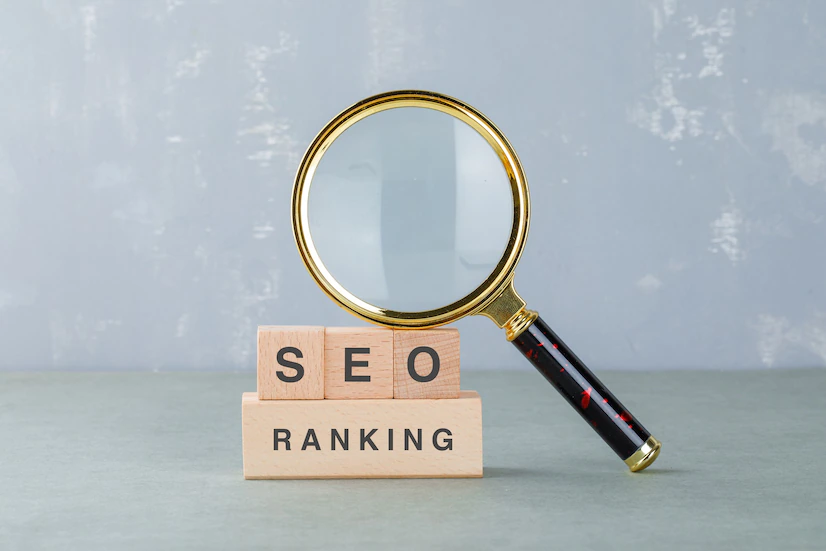How SEO Agencies Get More Google Traffic to Your Site?
4 Mins Read
Published on: 19 May 2022
Last Updated on: 24 May 2022

toc impalement
Have you ever wondered how a SEO agency gets a website ranked at the top of Google? Your first thought may have been that it was just luck, but actually, that’s not the case.
Enter SEO (search engine optimization), which is the practice of helping a website rank in search engines like Google. The first step in working with clearwater – SEO agency melbourne is to understand what exactly they do for your business and why it’s important.
Identify your target market

At this stage, you need to identify your target market. Sometimes, it is obvious who you are trying to reach—for instance, if you are a travel company that sells flights to Italy or a B2B enterprise software firm.
However, understanding your audience and the keywords they use goes beyond knowing their gender, location, and average income. You want to know:
- Their demographics
- Their interests
- Their pain points
- How they search online for solutions
Research your competition

Researching your competition is an important step in any SEO campaign. You can do this by searching for keywords that relate to the product or service that you provide and observing which sites are ranking highly for those keywords and which content is ranking highly, as well as what links are pointing to those sites and where the sites are getting their links from.
Optimize your website for search engines

To optimize your website for search engines, you need to turn your attention to the elements of your site that affect its ranking on Google and other search engines.
- Choose keywords and use them wisely. This is a monumental step in improving your SEO because the keywords you choose determine which phrases and terms people will use to find your site on a search engine.
- Write SEO-friendly content for each page of your website. This includes incorporating keywords into page titles, subheads, text, URLs, image alt tags, meta descriptions (the description that shows up under links), video captions and transcripts, etc.
- Build a site structure based on how people experience your website from the perspective of users’ needs (e.g., landing pages). Your site should have a clear hierarchy in which all pages are reachable via no more than three clicks from your homepage—this makes it easier for both readers and search engines to understand where they are at any given time.
- Create a sitemap that lists all of the pages on your website; this helps search engines find them quickly when crawling through sites online! You can also submit this file directly through Google Search Console or Bing Webmaster Tools.
Track and analyze your results

The ability to analyze your results is crucial to the success of an SEO strategy: if you don’t know how your current efforts are performing, it will be difficult for you (or your agency) to improve upon them or make decisions about where to focus resources.
It’s important for you and your SEO agency to define what “successful” means for this SEO strategy in terms of what metrics matter most and why. For example, if you know that a high bounce rate is bad for conversions, then your success metric would be a lower bounce rate. If you’re not sure what constitutes good or bad, do some research on the subject! Once that’s done, track those metrics over time so they can be analyzed later.
With all the data at hand, it’s time to take a look at whether your SEO strategy is working as intended. Are you seeing an increase in Google traffic? Is more of that traffic sticking around on your site? Are they following through with conversions? If you see improvement, then let things continue as they are!
However, if things aren’t looking so hot right now—if traffic isn’t increasing as much as expected or users aren’t converting after visiting—it’s time for some troubleshooting. Remember: no one expects their first attempt at SEO techniques (or any techniques, really) to produce amazing results; there will always be room for improvement!
Finally, once enough data has been collected and analyzed from this first go-round with SEO techniques, use that information to help improve upon existing strategies or implement new ones based on what has worked best so far.
Wrapping it up
SEO is a long-term strategy. Building up authority and relevance takes time, so it’s important to keep your goals realistic and be patient as you move forward with your SEO campaign.
But it’s not just about generating more Google traffic. While ranking well for specific keywords can drastically increase the number of people visiting your website, what matters most is attracting the right visitors.
SEO agencies with expertise in both on-site optimization and overall marketing strategies will be able to help you manage both attributes at once—and that makes all the difference when it comes to reaching your audience in a meaningful way.
Read Also:


















Comments Are Closed For This Article